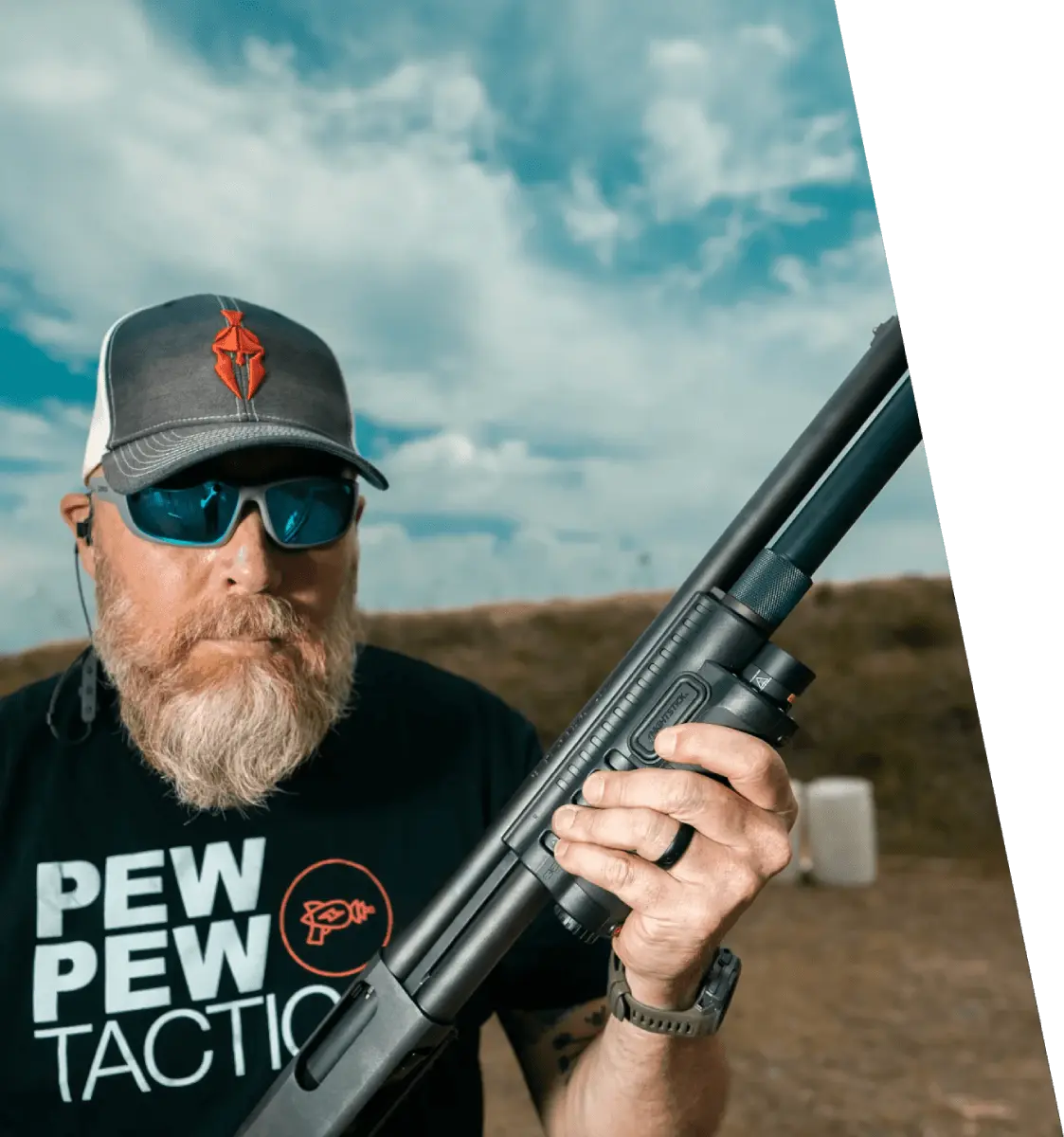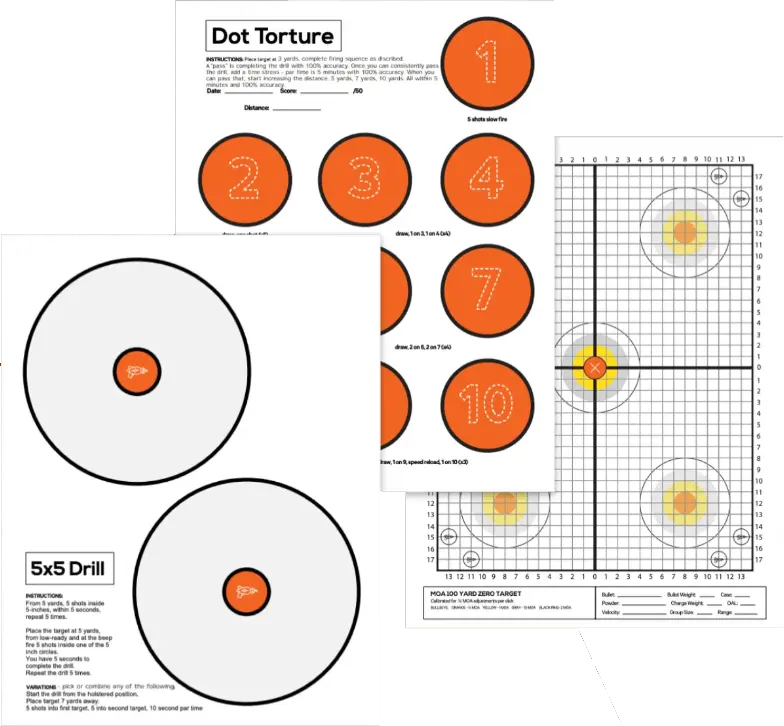Last Updated: July 21, 2025
Disclaimer: While the information provided here is legal in nature, it is not to be construed as legal advice and is for educational and entertainment purposes only.
Introduction
Colorado used to be a relatively lax state when it comes to gun laws (minus Boulder), but in recent years, restrictions have gotten much heavier.
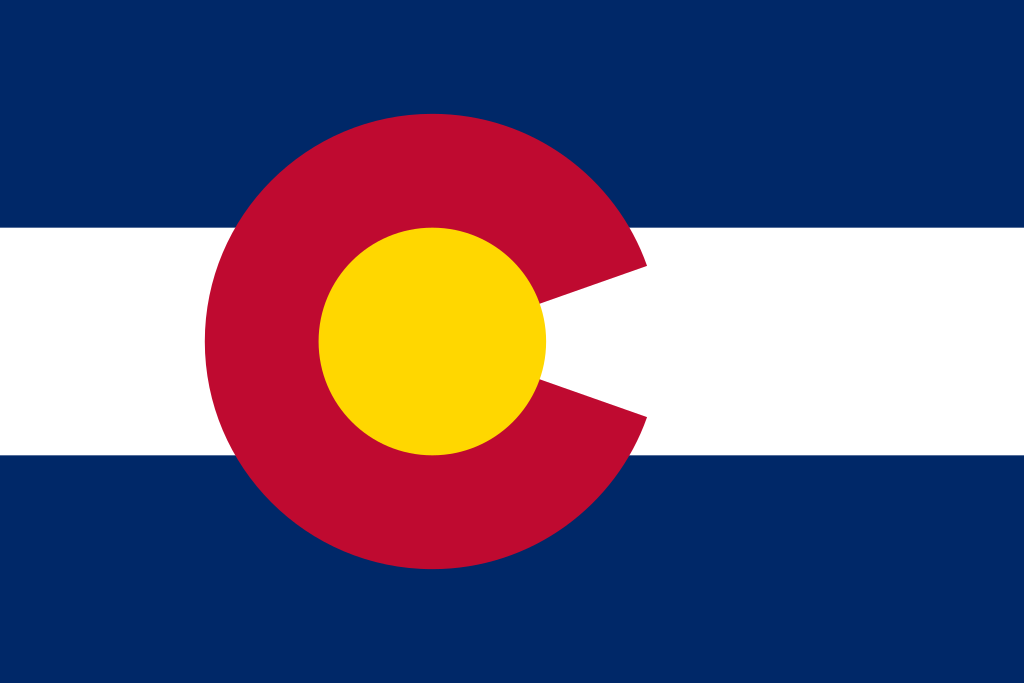
There are some things a responsible gun owner will want to watch out for when buying, selling, or carrying a firearm in the Centennial State.
We’ll go over all you need to know about buying and using firearms in the state of Colorado.
Table of Contents
Loading...
Snapshot Summary
- Permit to Own/Purchase a Firearm: No*
- Permit to Own/Purchase Ammunition: No*
- Firearm Registration Requirements: No
- Firearm Restrictions/Bans: No*
- Magazine Restrictions/Bans: Yes
- Other Restrictions/Bans: No
- Safe Storage Laws: Yes
- Concealed Carry: Yes, Shall Issue
- Open Carry: Yes
- Castle Doctrine: Yes
- Stand Your Ground Laws: Yes
- Duty to Retreat: No
Before We Get Started
Colorado grants counties and municipalities considerable autonomy in determining local gun laws and ordinances. As such, we strongly recommend investigating local requirements and restrictions.
Denver and Boulder deserve some special attention, as they have stricter gun laws than the rest of the state. We cannot cover everything, but we’ll highlight the key points to help get you started.
Denver and Boulder

Note: Rocky Mountain Gun Owners successfully sought a restraining order against Boulder and other municipalities in Boulder County for their gun bans. Enforcement of the bans is on pause until the legal situation is resolved.
Denver County bans open carry in all situations. Concealed carry restrictions match most of the rest of the state, except Denver, which bans concealed carry in public parks as well. Finally, Denver has an assault weapons ban. Banned guns include:
- All semi-automatic pistols and centerfire rifles with a detachable magazine with a capacity of more than 15 rounds
- All semi-automatic shotguns with a folding stock or a magazine with a capacity of six rounds (or both)
- Any firearm that’s been modified to operate as a weapon, as defined above; and
- Any part, or combination of parts intended to convert a firearm into an assault weapon, as defined above
The City of Boulder has a total ban on open carry as well as a 10-day waiting period when buying a gun, compared to the state’s 72-hour waiting period. The city’s list of prohibited places is also larger, expanding to banks, theaters, polling places, and hospitals. Boulder bans the sale and possession of assault weapons and high-capacity magazines.
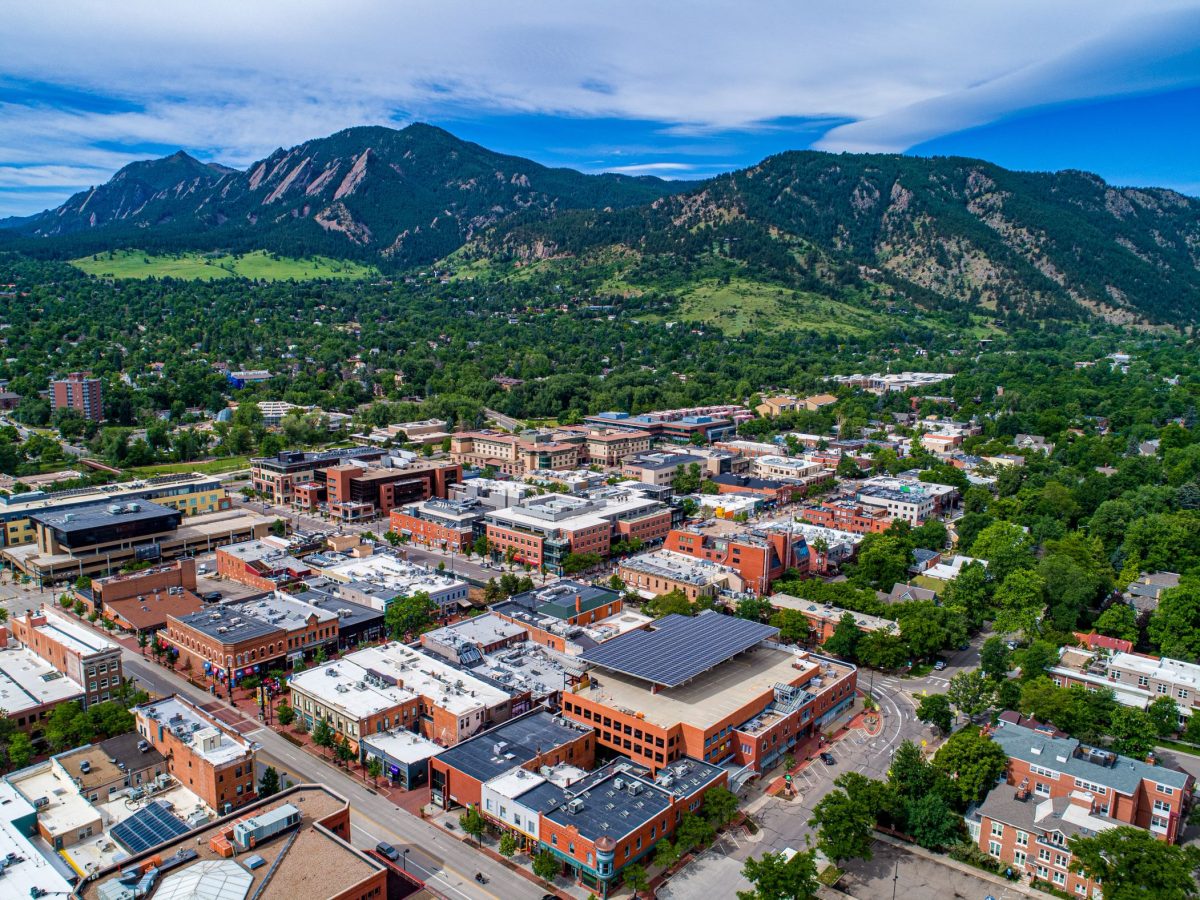
The term assault weapon matches Illinois’ definition almost perfectly. Magazine capacities are capped at 10 rounds for handguns and most rifles and five rounds for shotguns.
There is no grandfather clause for magazines owned prior to the ban’s start. To top things off, Boulder requires gun dealers to post health warning signs on their premises.
Gun Ownership Laws
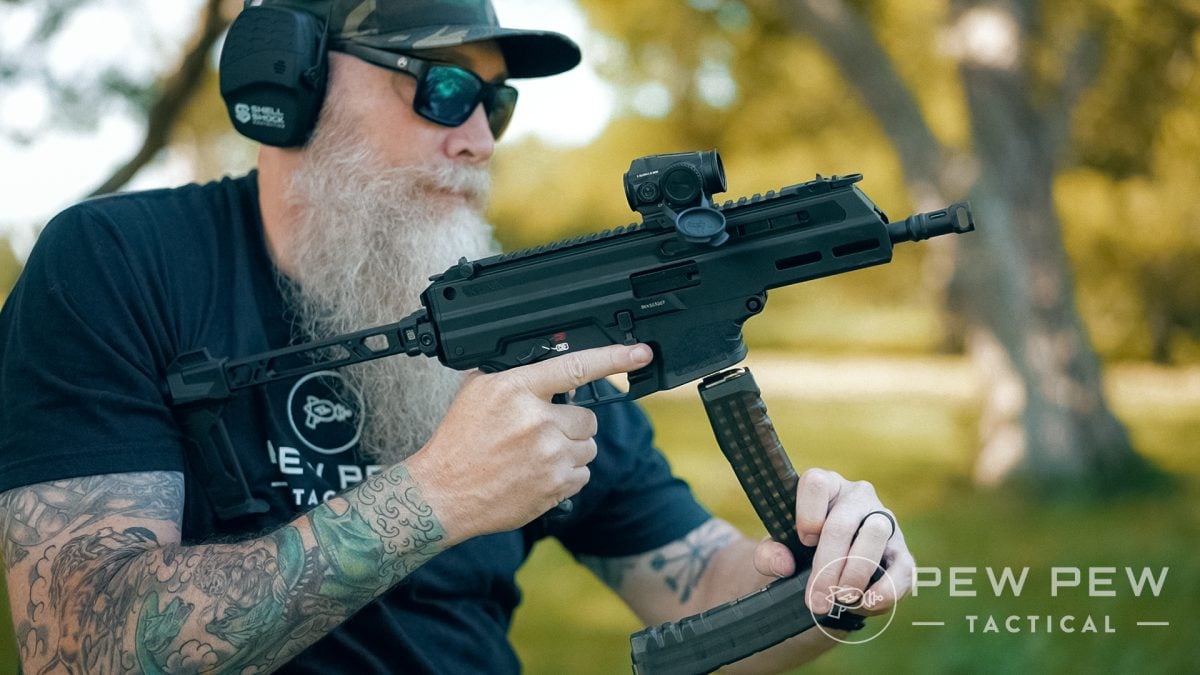
In Colorado, you may not purchase, own, or possess a gun if you
- Are a fugitive from justice
- Are illegally or unlawfully in the United States
- Are in the United States on a non-immigrant visa
- Were dishonorably discharged from the U.S. military
- Have renounced your U.S. citizenship
- Unlawfully use or are addicted to any controlled substance
- Have been adjudicated as a “mental defective” or have been committed to any mental institution
- Under federal or other state law, have been convicted of or are under indictment for:
- A felony
- Any crime punishable by imprisonment for a term exceeding one year
- An attempt to commit a felony
- An act that would constitute a felony if committed in Colorado
- A misdemeanor crime of domestic violence (unless the misdemeanor involved no force or threats of force)
- Have been convicted of one of the following misdemeanors within the last five years, under federal, state, or military law:
- Third-degree assault
- Harassment
- Sexual assault or unlawful sexual contact
- Child abuse
- Violation of a protection order
- A crime against an at-risk (i.e., vulnerable) person
- A bias-motivated crime (intimidation, harassment, or physical harm based on someone’s actual or perceived race, color, religion, ancestry, national origin, physical or mental disability, or sexual orientation)
- Cruelty to animals
- Possession of an illegal weapon
- Unlawfully providing a firearm other than a handgun to a juvenile
- Were adjudicated as a delinquent minor within the last 10 years for a crime which, for an adult, would count as a felony
- Are subject to a protective order that prohibits gun possession
Colorado bans the possession of a firearm without a serial number.
Underage Gun Ownership
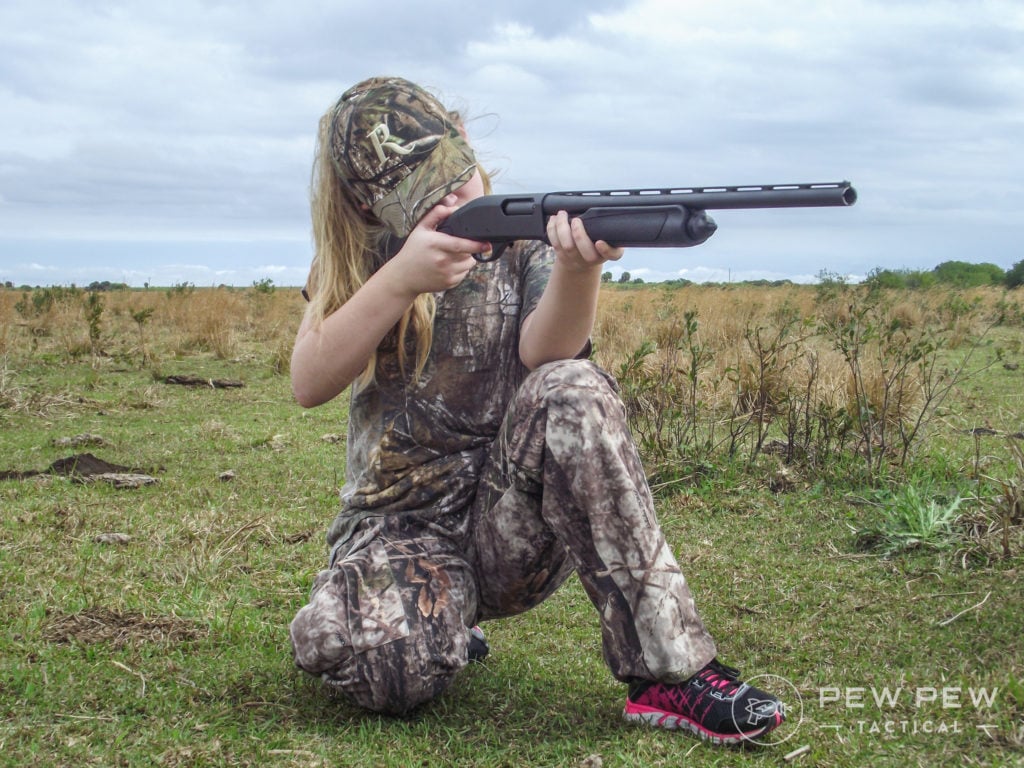
Anyone between 18 and 21 can legally own a gun in Colorado.
Colorado does not place an age limit on the possession of long guns. That said, minors are banned from possessing a handgun unless they are:
- Attending a Hunter Education Course or firearms safety course
- Target shooting
- Organized shooting competitions
- Non-shooting performance competitions organized by a non-profit that involve firearms (such as JROTC parades)
- Hunting or trapping with a valid license
- Traveling with an unloaded handgun to or from any of the activities above
- On property under the control of a parent, grandparent, or guardian, with that person’s permission
- At home, with permission from the parent or guardian to own a handgun for self-defense
Safe Storage & Child Access Prevention Laws
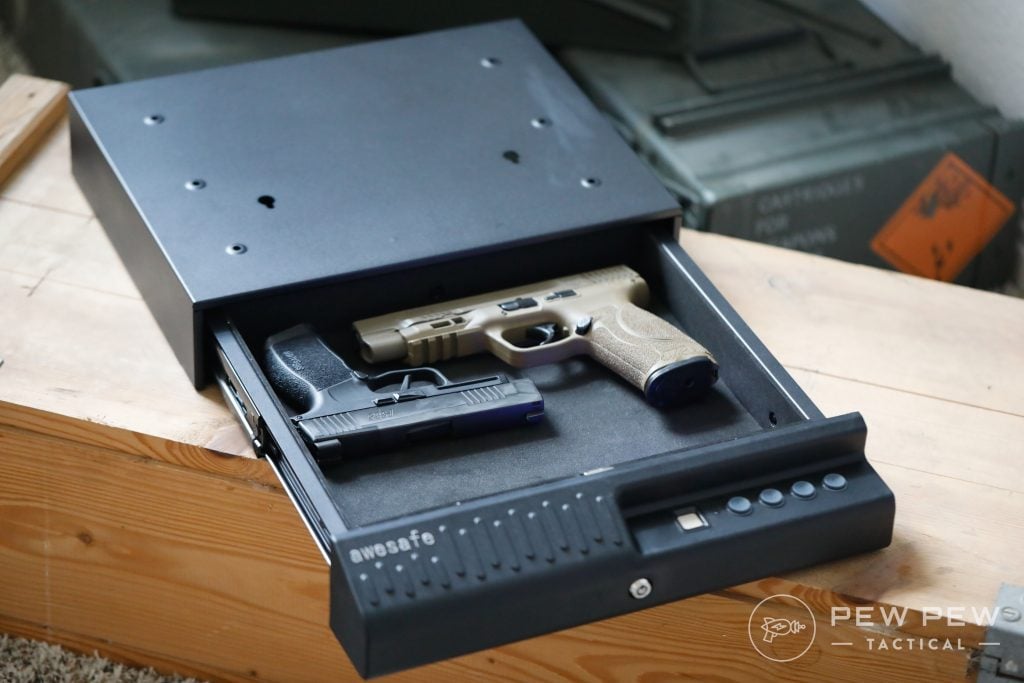
Colorado requires all firearms to be responsibly and securely stored to prevent minors and unauthorized users from accessing them when not in use. This standard is met when:
- Carrying the firearm on your person or within such close proximity that you can readily retrieve and use it as if you were carrying it on your person
- The firearm is kept in a locked gun safe or secure container or is stored in a reasonably secure manner and a juvenile or another unauthorized user cannot access the key, combination, or unlocking mechanism
- The firearm has a locking device properly installed and a juvenile or other unauthorized user cannot access the key, combination, or unlocking mechanism
- The firearm is a personalized firearm and the safety characteristics of the firearm are activated (like the Biofire Smart Gun)
These requirements apply to your RV if that is your primary residence.
Gun dealers are required to sell (or otherwise transfer) firearms with a locking device.
Firearm Registration Requirements
Colorado does not officially require gun owners to register their firearms at this time.
Restrictions and Bans
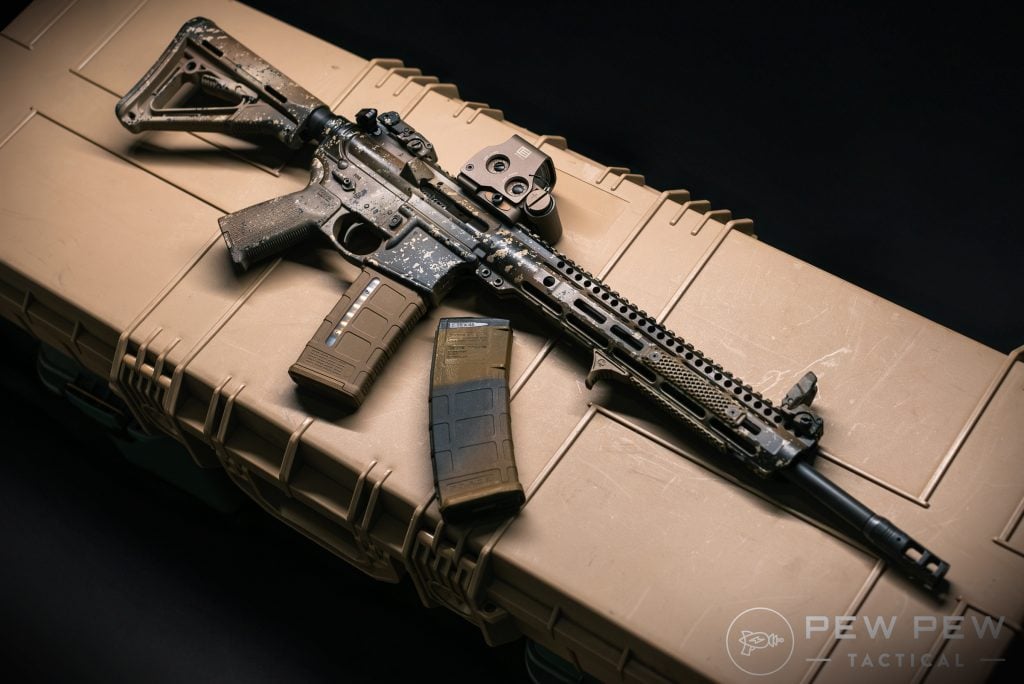
Effective August 1, 2026, Colorado residents may no longer manufacture, distribute, transfer, sell, or purchase a specified semi-automatic firearm (SSF) without both obtaining a sheriff-issued Firearms Course Card (FCC) AND completing a state-approved Firearms Safety Training Course.
An SSF is defined as:
- A semi-automatic rifle or shotgun with a detachable magazine
- A gas-operated semi-automatic handgun with a detachable magazine
This definition encompasses ARs, AKs, SCARs, FALs, and other “tactical” rifles, shotguns, and pistols, including pistol variants of ARs, AKs, and similar firearms. For better or worse, there is no specific list of banned guns.
Guns that are exempt from the ban include:
- Any firearm with a permanent 15-round magazine, including those altered to permanently install (weld, epoxy, or solder) the magazine 15-round magazine
- All .22 or lower caliber rimfire guns unless they have separate upper and lower receivers (such as the Smith & Wesson M&P15-22)
- Bolt, pump, lever, or slide action firearms
- Single or double-action semi-automatic handguns that use recoil to cycle the action
- Permanently inoperable firearms
- Antique, curio, or relic firearms
- All of the following as they “exist” and are configured on August 1, 2026:
- AG42 Ljungman
- Benelli Arog E Pro
- Benelli RI Big-Game Rifle
- Browning BAR MK 3
- Browning BAR LongTrac Rifle
- Browning BAR ShortTrac Rifle
- Fabrique Nationale Model 49 (FN49)
- Fusil Automatique Model E 1917 (RSC M1917)
- Gewehr 43
- Globco Mohawk
- Hakim Rifle
- HK SL6
- HK SL7
- M1 Carbine
- M1941 Johnson Rifle
- Marlin Camp Carbine
- MAS49
- Remington Model 4
- Remington Model 8
- Remington Model 740
- Remington Model 742
- Remington Model 750
- Remington 7400
- Ruger Deerfield Carbine
- Ruger Mini-14 Ranch Rifle
- Ruger Mini Thirty Rifle
- Ruger Model 44
- Springfield Armory M1A Standard Issue Rifle
- SVT 40
- VALMET Hunter M88
- VZ.52; Winchester Model 100
- Winchester Model 1905
- Winchester Model 1907
- Winchester Model 1910
Grandfathered Guns
If you already possessed an SSF prior to August 1, 2026, you do not need to obtain special permission or training to keep it.
Magazine & Accessory Restrictions
Colorado bans the purchase, possession, or ownership of any detachable handgun or rifle magazine or other ammunition feeding device (AFD) with a capacity of over 15 rounds, regardless of the manufacturer’s original design.
Detachable shotgun magazines or AFDs are limited to eight rounds or less, and tubular shotgun magazines cannot hold more than 28 inches of total combined shell length.
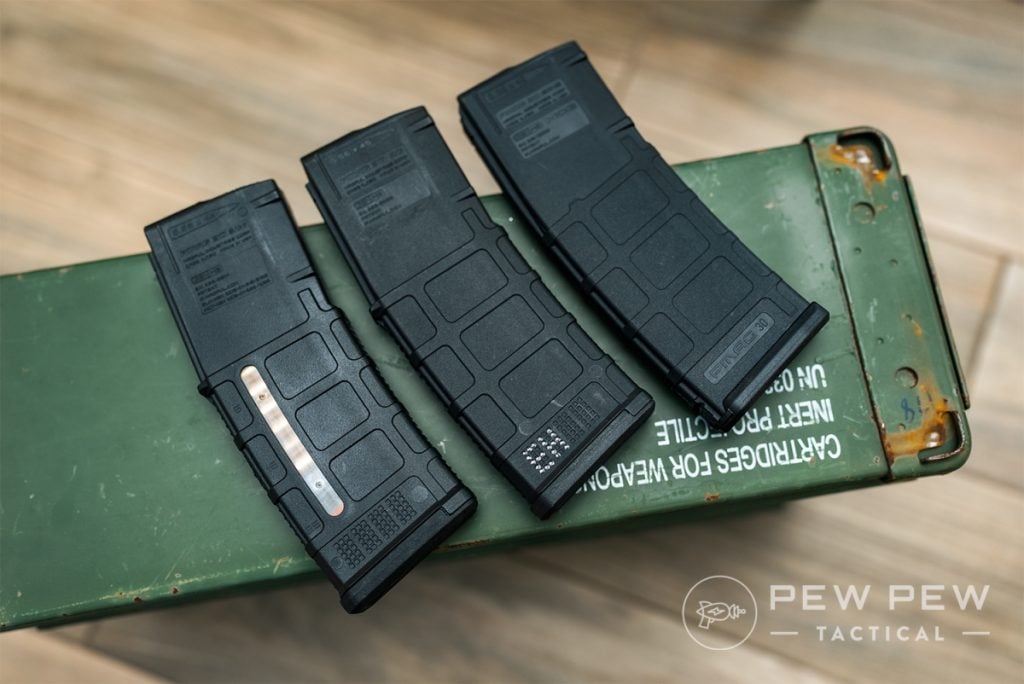
Fixed lever-action tubular magazines and tubular magazines for .22 caliber rimfire ammo are exempt from the round count restriction. Magazines permanently altered to limit the round count to 15 or less are also legal.
As of August 1, 2026, bump stocks and “rapid-fire devices,” such as binary triggers and forced reset triggers, are illegal in Colorado.
Grandfathered Magazines
You may possess a high-capacity magazine (16+ rounds) in Colorado if you owned it on July 1, 2013, and have maintained continuous possession since that time.
Purchasing a Gun
Colorado now bans anyone under 21 from buying a gun, unless they are:
- An active member of the U.S. military
- A law enforcement officer
- Certified by the Colorado Peace Officer Standards and Training (POST) board
All retail sales of guns, firearm “precursor parts,” and ammo are subject to a 6.5% excise tax.
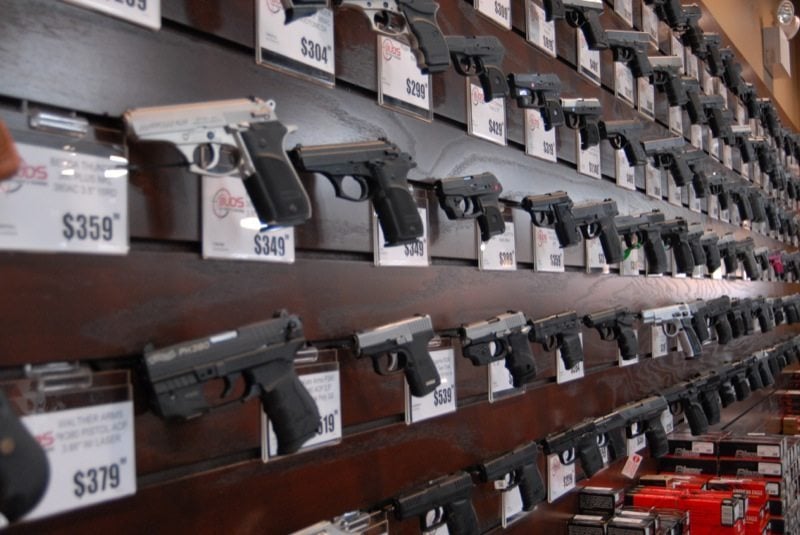
This tax is paid based on a retailer’s total monthly sales and is not paid directly by customers, leading to speculation that prices will likely increase at some point to help cover the new tax.
Sales to law enforcement officers and active-duty military personnel are exempt from this tax.
If you, as a Colorado resident, leave the state to purchase a specified semi-automatic firearm (SSF), you will be breaking federal law.
Firearms Course Card (FCC)
Note: Colorado does not have a gun owner purchasing permit system; however, Governor Jared Polis signed Senate Bill 3 into law in April 2025, which will create a system very similar to a gun owner’s purchasing permit. At this time, many federal courts are refusing to hear challenges to new laws until after they go into effect, so we will need to wait and see if this law will be successfully challenged or repealed.
Effective August 1, 2026, Colorado residents may no longer purchase or otherwise acquire an SSF without first completing an approved firearms safety course. An SSF is defined as:
- A semi-automatic rifle or shotgun with a detachable magazine
- A gas-operated semi-automatic handgun with a detachable magazine
However, before completing your training, you must first obtain a Firearms Safety Course Eligibility Card (Firearms Course Card or FCC) from your local sheriff’s office. To apply for an FCC, you must:
- Satisfy all legal requirements for purchasing a gun
- Submit to a name-based criminal background check (state and national)
- Pay a non-refundable fee (set by your sheriff’s office)
According to state law, your sheriff’s office must issue you an FCC if you qualify. If you are denied a card, you can file an appeal lawsuit.
Once you receive your FCC, it is good for five years; however, your sheriff’s office may revoke your card if you break the law or are subjected to an extreme risk protection order.
SSF Training
Once you receive your FCC, you must complete a qualified training course or a combination of courses before purchasing an SSF.
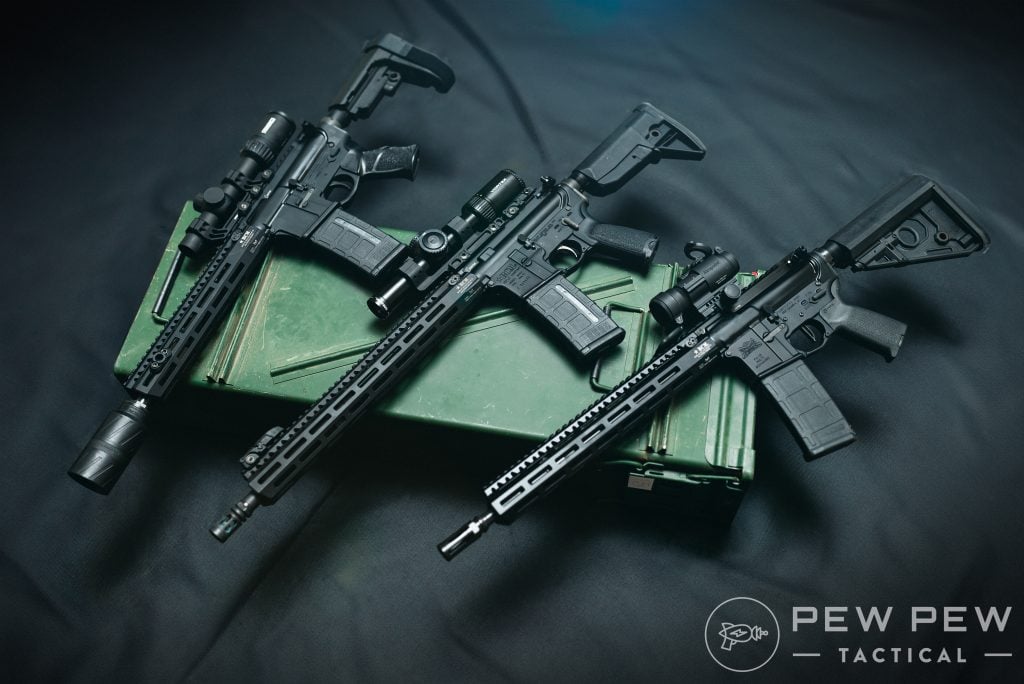
A record of your training results will be stored in a Colorado Parks and Wildlife (CPW) database to allow for verification that you have completed your training successfully.
To purchase an SSF, you must complete one of the following:
- Extended Firearms Safety Course
- Basic Firearms Safety Course and CPW-certified Hunter Education Course
- Basic Firearms Safety Course if your previous Extended Firearms Safety Course has expired
The Basic Firearms Safety Course is a four-hour class, and the Extended course is a 12-hour commitment. Course materials cover:
- Safe handling of semi-automatic firearms and magazines
- Safe storage of firearms and child safety
- Firearm deaths associated with mental illness
- Extreme risk protection orders (i.e., red flags)
- Victim awareness and empathy
Both courses expire at the five-year mark, and to complete either one, you must demonstrate your ability to safely handle firearms and score at least 90% on the mandatory exam. It can take up to three days for your course completion to appear in the CPW database.
While a Hunter Education Course is typically good for life, to qualify for SSF training, you must have completed it within the last five years. This training can be taken in person or as a hybrid online/in-person class.
FCC and SSF Exceptions
You do not need an FCC or SSF training if you are:
- A gunsmith
- A member of or participant in an educational program
- Working as an active-duty law enforcement, peace, or corrections officer
- Working as active-duty military
- Working in the armored vehicle business
- Using “certain firearms” as props for a movie
There is also an exception for those who have a banned gun transferred to them upon someone’s death (e.g., an inheritance) or as part of an “operation of law.”
Purchasing From a Dealer
All gun buyers in Colorado must pass a Colorado Bureau of Investigation (CBI) background check.
If you fail the background check, you may file an intent to appeal the decision within 30 days of the rejection. You can file your appeal online or by mail, but in-person appeals will not be considered.
Once you make your purchase, you must wait three days before taking your new gun home with you.
Note: Even though it is legal to possess and use marijuana in Colorado, doing so violates federal gun law and automatically makes you ineligible to purchase a gun.
Buying a Handgun
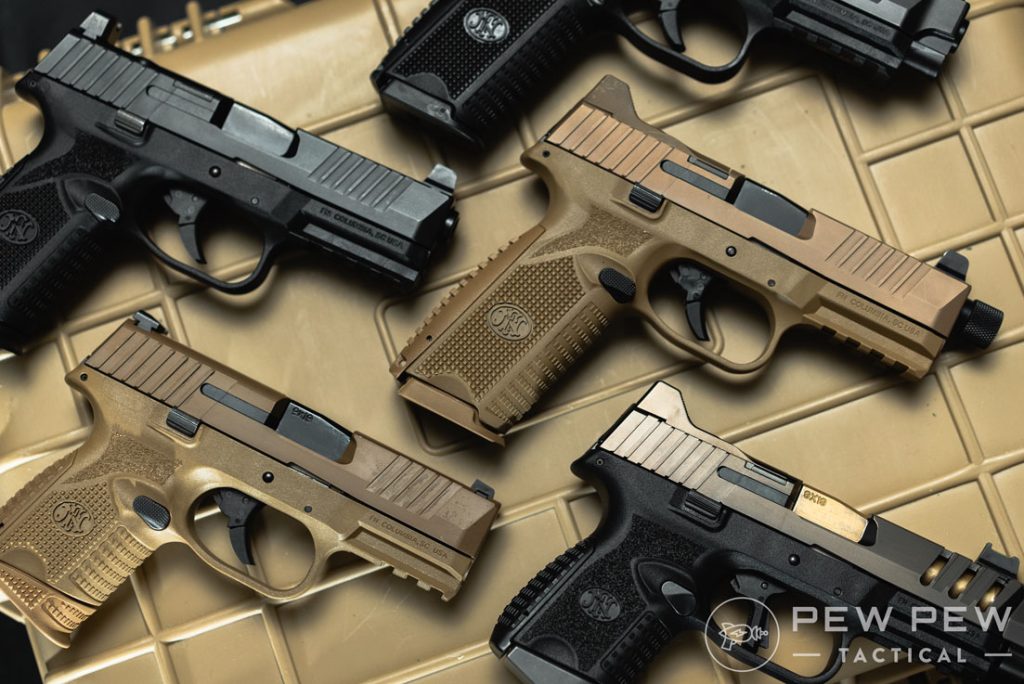
To buy a handgun, you must:
- Be 21 or older
- Meet all Colorado and federal gun ownership and purchasing requirements
- Provide a Colorado ID
- Pass a CBI background check conducted by a licensed firearms dealer
If you are an out-of-state resident, you can only purchase a handgun in Colorado if you are:
- Redeeming a pawn ticket and can pass a CBI background check by a licensed firearms dealer
- Having the gun shipped to an FFL in your own state who will then conduct the background check
You will still be subject to the 72-hour waiting period.
Buying a Long Gun
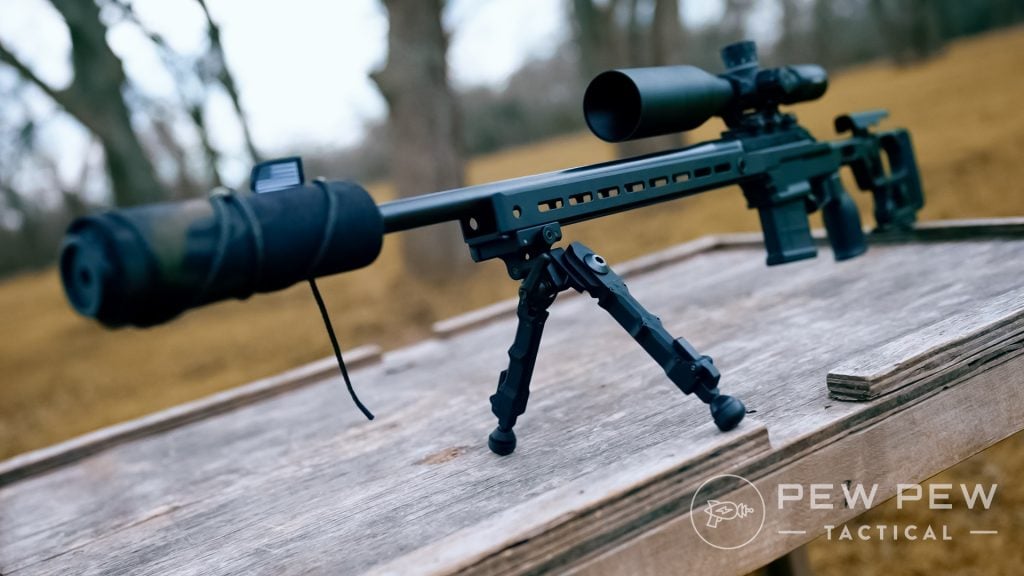
To buy a long gun, you must:
- Be 21 or older
- Meet all Colorado and federal gun ownership and purchasing requirements
- Provide ID (from any state)
- Pass a CBI background check conducted by a licensed firearms dealer
Private Sales
In Colorado, all legal gun sales require a background check by a licensed firearms dealer of the buyer or transferee, even if the new owner is a family member. The three-day waiting period also still applies.
Military
Federal law requires licensed firearms dealers to accept PCS orders and a military ID as the equivalent of a state driver’s license or state ID in the state where you are stationed. Colorado does not have any perks or extra requirements for military members who wish to buy a gun.
Antiques and Heirlooms
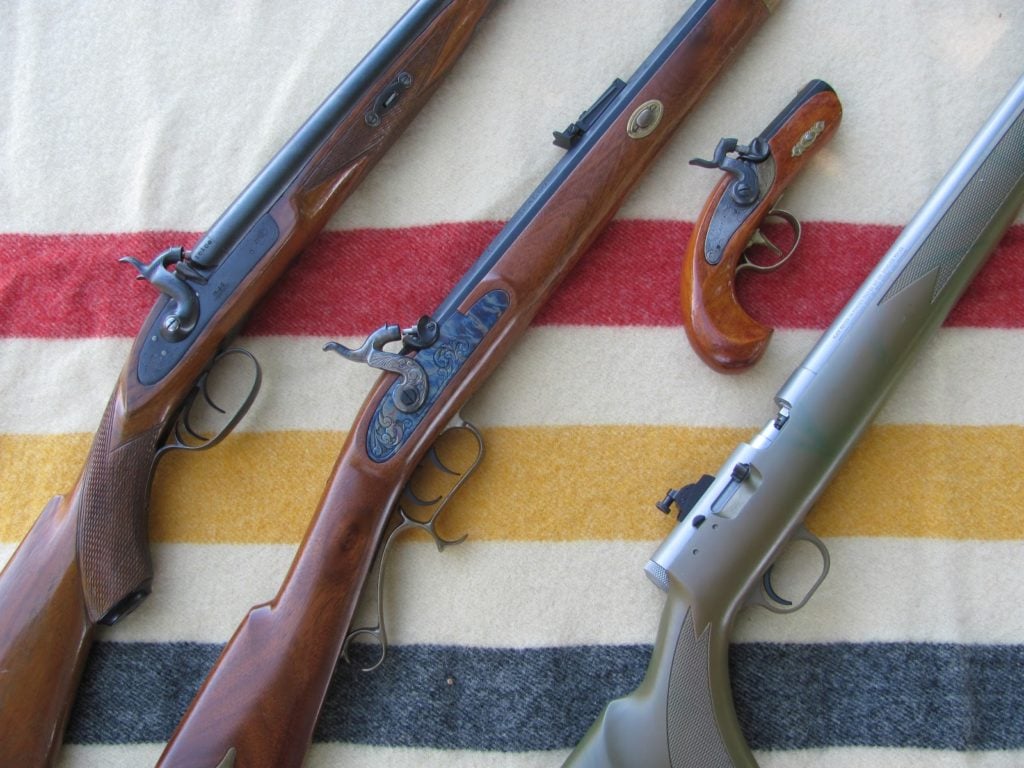
Colorado defines an antique firearm as any matchlock, flintlock, percussion cap, or similar firearm manufactured before 1899 or a replica of such firearm that:
- Is not designed or redesigned for using rimfire or conventional centerfire fixed ammunition
- Uses rimfire or conventional centerfire fixed ammunition that either is no longer manufactured in the US or is not readily available on the US market
This definition also covers antique black powder muzzleloaders, unless the gun:
- Incorporates a firearm frame or receiver
- Has been converted into a muzzleloader
- Can be readily converted to fire fixed ammunition by replacing the barrel, bolt, and/or breechblock
Colorado defines a curio or relic as a firearm that:
- Holds special interest to collectors due to some quality other than is associated with firearms intended for sporting use or as offensive or defensive weapons;
- Was manufactured at least 50 years prior to the current date (excluding replicas);
- Has been certified by the curator of a municipal, state, or federal museum that exhibits firearms to be curios or relics of museum interest; and
- Derives a substantial part of their monetary value from the fact that it is novel, rare, bizarre or because of its association with some historical figure, period, or event.
Purchasing Ammo
You must be 18 or older to purchase long gun ammunition in Colorado. Purchasing handgun ammo is restricted to those 21 and older.
Starting July 1, 2026, shoppers in Colorado will be required to show ID as proof of age (21 or older) to a store employee before accessing ammo.
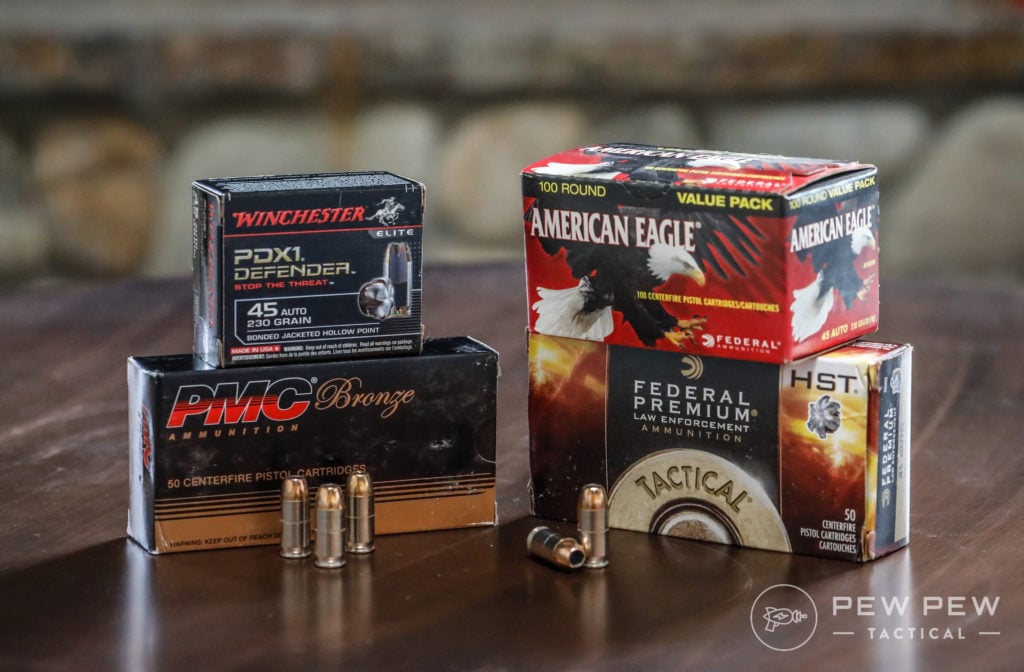
Ammunition must be stored in a locked container inaccessible to customers. If you are having ammunition shipped to your house, it must be clearly marked as such, and an adult 21 or older must sign for it upon delivery. If you are between 18 and 21, you may purchase non-rimfire ammo if you are at a shooting range and are:
- A member of the military or a veteran
- Have a hunter education certification
- Are protected by a protection order
Concealed Carry & Open Carry
In Colorado, both concealed and open carry are generally allowed with few limitations. Of course, there are some places where carrying a gun is never allowed, including:
- Private property with posted signs
- K-12 schools
- Public and private colleges and universities
- Federal property (except for outdoor spaces in national parks, national forests, etc.)
- State government buildings, courthouses, and their parking lots
- Local government buildings, courthouses, and their parking lots, unless local law makes an exception
- Airports
- Any public building with:
- Permanent security guards and electronic screening equipment (e.g., metal detectors)
- Electronic screening of every person who enters the building
- Requirements to leave guns with security personnel while individuals are in the building.
It is perfectly legal to carry guns openly or concealed in national parks or national forests if you abide by state law.
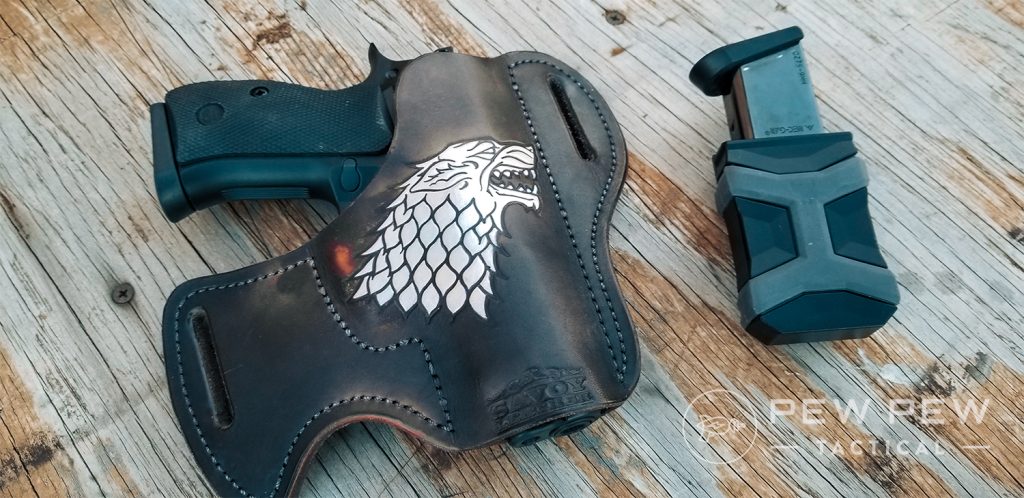
That said, you cannot carry in visitor centers, ranger stations, offices, or maintenance buildings, since these are all technically federal buildings. Thankfully, all such buildings in Colorado have signs clearly prohibiting firearms inside.
Other places also regularly ban firearms. These are determined on a case-by-case basis and don’t fall under state law. These places include:
- Public transit systems
- Parks
- Hospitals
- Places of worship
- Bars or restaurants where alcohol is served
- Sports arenas
- Gambling facilities
Open Carry
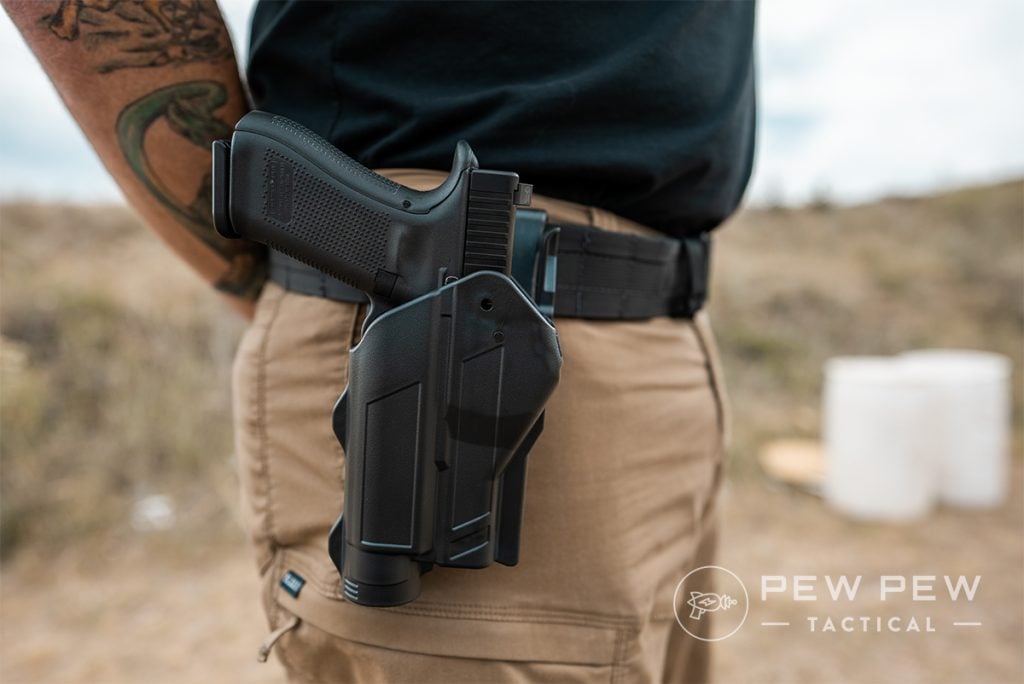
On the state level, Colorado allows lots of freedom when it comes to open carry. That said, you must be at least 18 to open carry.
While some states are strict about defining whether or not a gun is concealed, Colorado law says a handgun is not considered to be concealed if in your possession when you are:
- Inside a private vehicle and carrying it for a legal use, including self-defense; or
- Engaged in legal hunting activities.
One of the biggest restrictions on open carry is in polling places, ballot counting centers, or within 100 feet of a ballot drop box. You are exempt from this law if you are:
- On your own private property
- An on-duty law enforcement officer
- An on-duty, uniformed security guard
Carrying a loaded firearm while using public transportation is also illegal.
Some municipalities and counties ban open carry altogether, so visit your local government city or county website to get familiar with your local laws and ordinances.
Local governments that wish to ban open carry must post signs specifically prohibiting it.
Concealed Carry
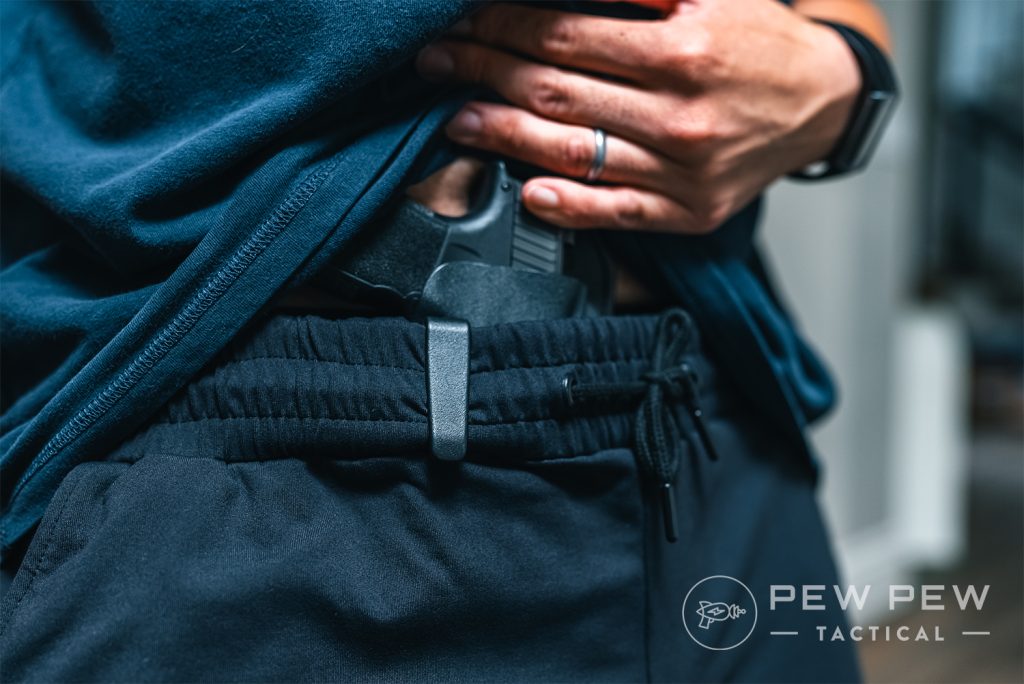
A permit is required to carry a handgun in a concealed manner; however, a permit is not required to carry concealed in your home, business, or any other property under your control (owned, leased, or rented property) or in your private vehicle, motorcycle, bike, or other means of transportation.
Getting Your CHP
Colorado sheriffs have a good bit of influence over the Concealed Handgun Permit (CHP) process.
For example, state law requires concealed carry training to be completed within 10 years of submitting your application, but El Paso County requires you to complete your training within six months of applying for your CHP. Always check with your sheriff’s office before starting the CHP application process to avoid any unnecessary headaches.
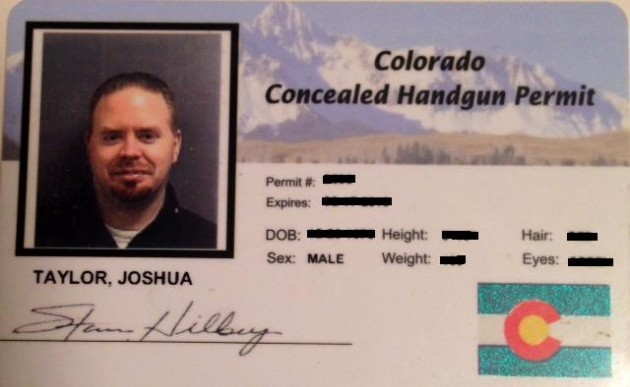
To apply for a Colorado CHP, you must:
- Be a legal resident of Colorado
- Be at least 21
- Not be prohibited from owning a firearm
- Not have been convicted of perjury in relation to a CHP application
- Not chronically or habitually abuse alcohol
- Not be unlawfully using or addicted to a controlled substance
- Not be subject to a restraining order, permanent protection order, or temporary protection order
- Not have been convicted of certain violent misdemeanors within the last five years including abuse, harassment, violation of a protective order, hate crimes, or possession of an illegal weapon
- Demonstrate competency with a firearm (by taking a course and getting a certificate)
- Money to cover the application fee (amount varies by county)
As part of your CHP application, you must prove your competency with a handgun, which means you must submit:
- An original or photocopy of a training certificate from an approved handgun training class obtained within the last 10 years (or less, depending on the county)
- Evidence of experience with a firearm through participation in organized shooting competitions or current military service
- Evidence you are a certified instructor at the time of your application
- Proof of honorable discharge from the U.S. military within the last three years
- Proof of honorable discharge from the U.S. military that reflects pistol qualifications obtained within the last 10 years
- A certificate showing retirement from a Colorado law enforcement agency that reflects pistol qualifications obtained within the last 10 years
If you have any of these, you’re ready to apply for your CHP. If not, you must complete a Colorado-approved concealed carry training course.
Training & Licensure Requirements
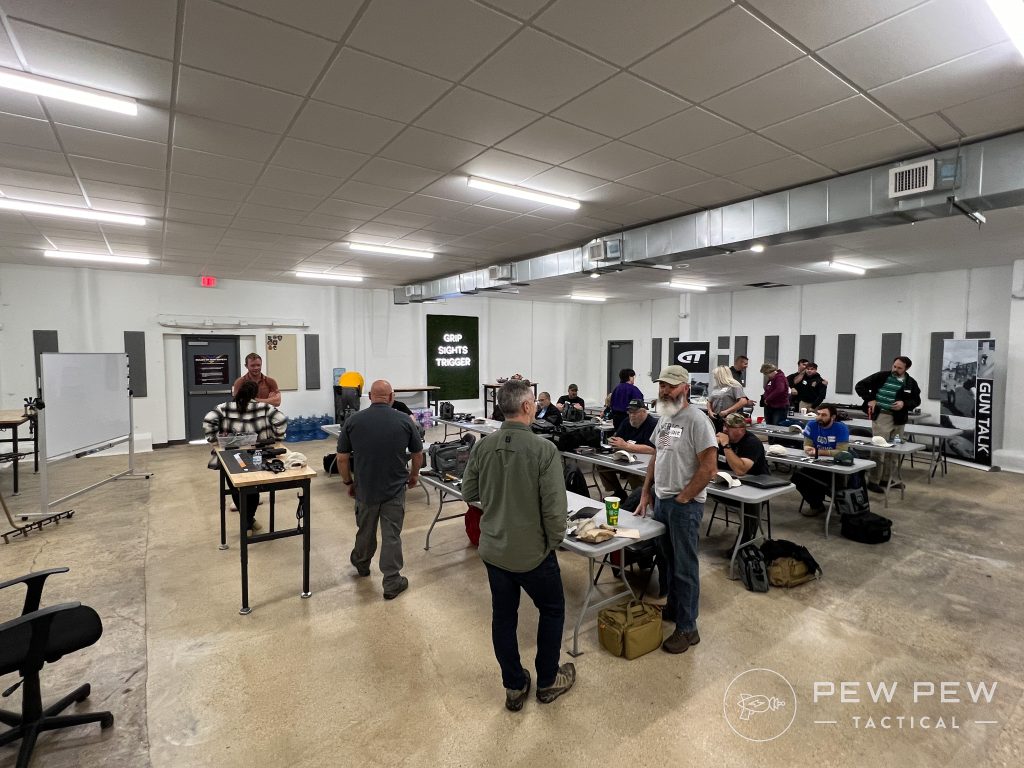
In Colorado, an approved CHP training course can be either a law enforcement training (Colorado P.O.S.T.) firearms safety course or a gun safety course taught by a verified instructor and offered by:
- A law enforcement agency
- An institution of higher education
- A public or private institution, organization, or firearms training school that is open to the general public and taught by a verified instructor
The training will cover:
- Safe handling and storage of firearms and ammunition
- Safe firearms shooting fundamentals
- Federal and state laws pertaining to the lawful purchase, ownership, transportation, use, and possession of firearms
- Extreme risk protection orders
- State law regarding the use of deadly force for self-defense
- Best practices to ensure safe interaction with law enforcement responding to an emergency
- Techniques for avoiding criminal attacks, managing violent confrontations and conflict resolution
Effective July 1, 2025, training must be done in person, must be at least eight hours long, and must include a live-fire section. Students also must achieve at least 70% accuracy during the live-fire session and score 80% or higher on the written exam.
The Waiting Game
Once you’ve got everything squared away, you will need to take your application to the sheriff’s office. Some counties require appointments, while others let you walk in without an appointment. You’ll submit your application, pay the fee, and get fingerprinted.
Each county’s wait time varies, but state law requires sheriffs to either approve (and issue) or deny a CHP within 90 days.
If CBI takes more than 90 days to review your fingerprints, the sheriff must make a call on whether or not to approve your application. If the late fingerprint review requires it, the sheriff may reverse his or her decision as necessary.
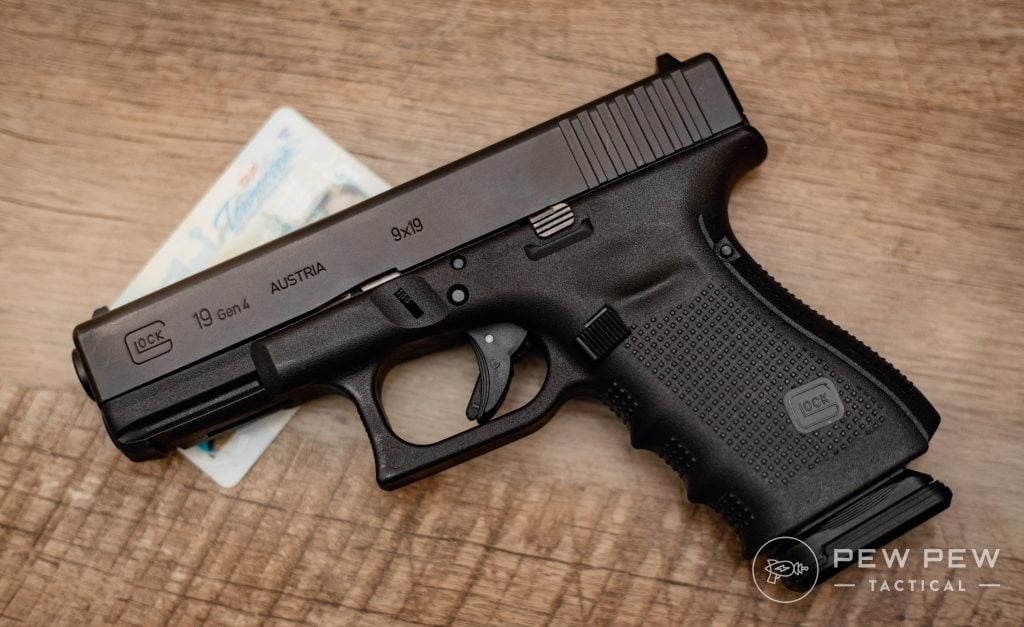
The sheriff can deny the permit if they believe any of your previous documented behavior makes you likely to present a danger to yourself or others if the permit is issued.
Along those lines, even if you have already been issued a permit, the sheriff can suspend or revoke your CHP if they do not believe you still meet all permit requirements. If you are denied, you will receive a written notification.
You can ask the sheriff to review your application again. If that doesn’t work, you can also appeal the decision in court.
Since Colorado is a shall-issue state, your sheriff must issue you a CHP if you meet all the requirements (and fill out your application correctly). Once issued, your CHP is good for five years.
Renewing Your CHP
In Colorado, you may renew your CHP up to four months before it expires, and there is a six-month grace period after it expires.
Some counties will send you a courtesy reminder before your CHP is about to expire. If you miss that window, you will need to start the CHP application process from the beginning.
You may apply for a permit either in your home county or in a county where you have a second residence or property belonging to and used by your business.
To renew your CHP, you will need:
- A completed renewal application
- A notarized affidavit stating that you are still eligible to hold a CHP
- A renewal fee
You may need additional documentation, such as a photocopy of your driver’s license, depending on your county.
To prove your eligibility to keep your CHP, you must:
- Have a certificate showing completion of an approved two-hour concealed handgun refresher class from an approved instructor within the last six months (including a passing score on both the written exam and the live-fire exercise)
- Have a certificate showing completion of an approved eight-hour CHP training course with an approved instructor
- Demonstrate participation in organized shooting competitions, current military service, or current certification as a law enforcement officer
- Be an approved gun safety course instructor
- Be honorably discharged from the U.S. military or retired from a Colorado law enforcement agency with pistol qualifications within the last 10 years
Since CHPs are issued by county sheriffs instead of a state agency, you will need to apply for a new permit if you move to a different county. Unfortunately, renewals are not an option in this case.
Any CHP Exceptions or Loopholes?
You do not need a CHP to carry concealed if you are:
- A Colorado law enforcement officer
- An on-duty U.S. probation officer
- A current law enforcement officer from a jurisdictions outside of Colorado that also exempt Colorado law enforcement officers
- A retired law enforcement officer who qualifies under the Law Enforcement Officers Safety Act (LEOSA) of 2004
If you are a LEOSA-qualified retiree, you:
- Retired in good standing for any reason other than mental instability
- Before retirement, were authorized to engage in prevention, detection, and prosecution and had powers of arrest
- Before retirement, were regularly employed for an aggregate of 10 or more years of commissioned service OR retired after completing the probation period due to a service-connected disability as determined by the agency
- Had a non-forfeit-able right to benefits under a retirement plan
- Have met the state standard for training and qualification for active law enforcement officers to carry firearms within the last 12 months
Emergency Permits
You can also apply for a temporary emergency CHP if you are in immediate danger and the Sheriff determines it would be appropriate to issue the permit. To qualify for a temporary emergency permit, you must:
- Be 18 or older
- Meet all the requirements of a standard permit except demonstrating competence with firearms
This temporary permit is good for 90 days and can be renewed once if necessary. If the emergency CHP holder is under 21, the sheriff may renew the permit until the holder reaches the age of 21.
Prohibited Places
Even though the CHP is good throughout the entire state, there are still places where you cannot carry a firearm. Since carrying openly and concealed are subject to many of the same location restrictions, we will focus here on the differences between them.
Places where concealed carry is allowed (but open carry isn’t) include:
- A K-12 school if you officially work security for the school
- Undeveloped school property dedicated to use for hunting or other shooting sports
- The parking lot of a prohibited state or local government building or courthouse
If you do happen to visit a prohibited place, we recommend you leave your handgun in the car in accordance with state storage laws.
Concealed Carry Reciprocity
Most states allow Colorado CHP holders to carry concealed, although this is due to having constitutional (permitless) carry laws on the books rather than official reciprocity.
The age of eligibility varies by state, and the laws for permitless carry may differ from regular concealed carry laws, even within the same state.
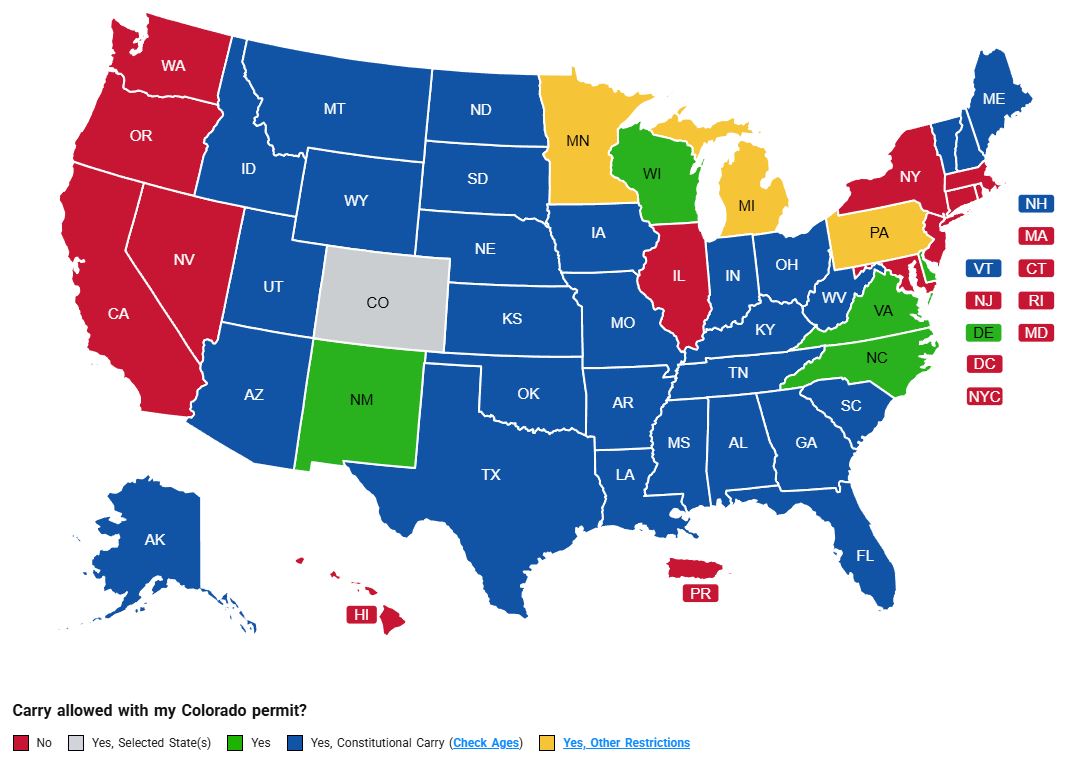
Both Michigan and Pennsylvania recognize Colorado CHPs; however, they have additional restrictions that you will need to know before carrying in either state.
While most states recognize Colorado’s CHP, some still do not. A Colorado CHP is not recognized in:
- California
- Connecticut
- Hawaii
- Illinois
- Maine*
- Maryland
- Massachusetts
- Minnesota
- Nevada
- New Jersey
- New York
- Oregon
- Rhode Island
- South Carolina*
- Washington
- Washington D.C.
Maine and South Carolina do not recognize Colorado’s CHP, but since they are permitless carry states, this is practically a non-issue for Colorado residents.
Note: You’ll want to take a look at our state gun law guides for whichever state you’re planning on visiting, just to familiarize yourself with the gun laws on carrying while out there, and be aware of the differences you might need to be careful of.
Always check the law in the state you’re traveling to before you carry there.
Carry Laws for Out-of-State Visitors
For those of you who already have CCW permits from other states, Colorado recognizes valid permits from any state that also recognizes a Colorado CHP, but there are a couple of caveats.
First, you must be 21 or older, and you must be a resident of the state that issued your permit. Colorado recognizes CCW permits from:
- Alabama
- Alaska
- Arizona
- Arkansas
- Delaware
- Florida
- Georgia
- Idaho
- Iowa
- Indiana
- Kansas
- Kentucky
- Louisiana
- Michigan
- Mississippi
- Missouri
- Montana
- Nebraska
- New Hampshire
- New Mexico
- North Carolina
- North Dakota
- Ohio
- Oklahoma
- Pennsylvania
- South Dakota
- Tennessee
- Texas
- Utah
- Virginia
- West Virginia
- Wisconsin
- Wyoming
Colorado is not a constitutional carry state, so plan accordingly.
Transporting Your Guns
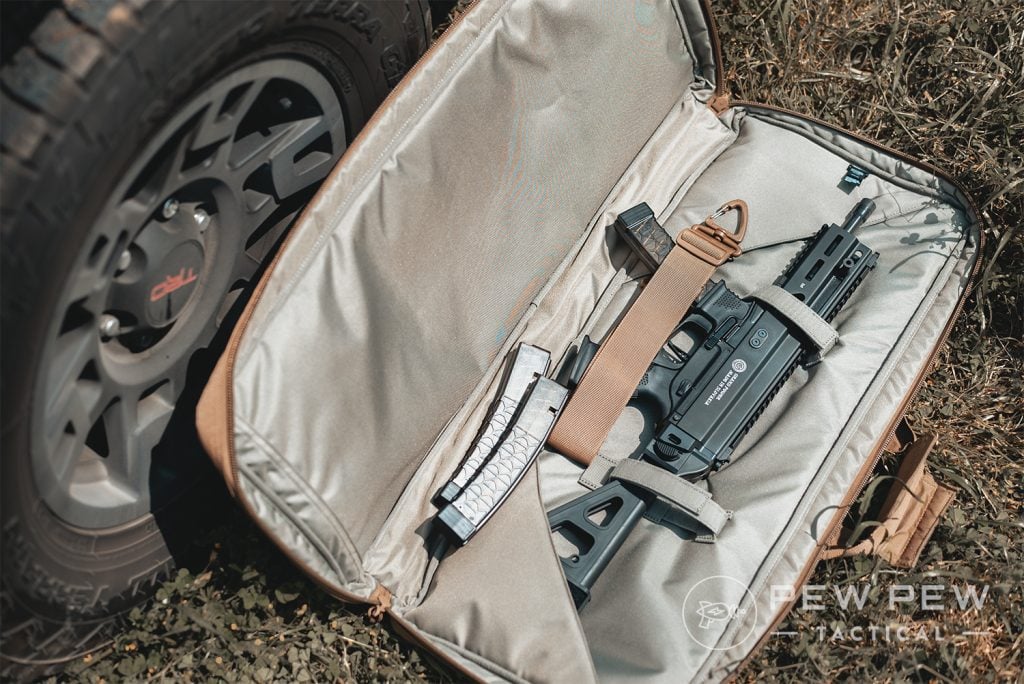
Colorado firearm transportation laws are fairly loose and apply to both Colorado residents and visitors from other states. They also apply to both average gun owners and CHP holders. Transporting your gun in a personal vehicle is permitted if you are using it for:
- Legal hunting activities; o
- Lawful protection of yourself, another person, or property
If you are pulled over for a traffic stop, you are not required to let the officer know you have a gun with you unless specifically asked.
If you stop in or pass through somewhere like Boulder, you and your gun are safe under state law. Counties and municipalities are banned from enforcing local gun ordinances if a gun is kept inside a personal vehicle.
That said, there are still a few requirements to keep in mind while traveling in or through Colorado. The state’s vehicle gun storage laws do require a little investment, such as a dedicated handgun safe, but they do not apply to antique firearms or guns stored in farm or ranch vehicles that never leave your property.
Transporting Long Guns
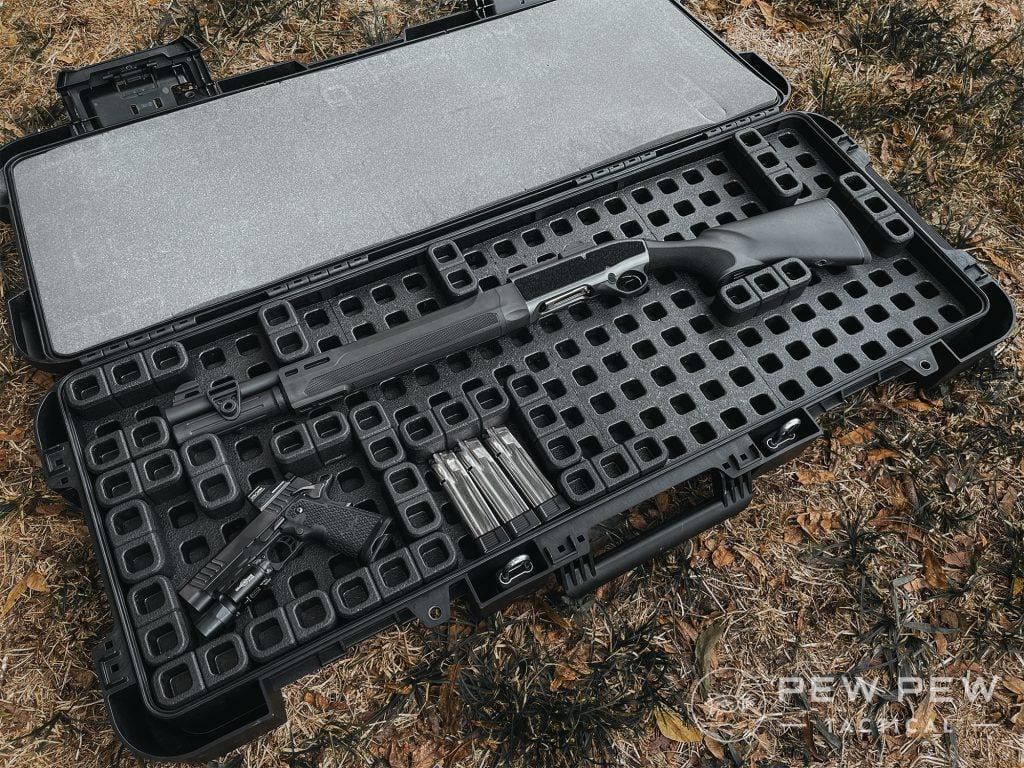
All long guns in your vehicle must be transported with an empty chamber, and muzzleloaders cannot be primed. This also applies to snowmobiles, unless you have a proper permit for predator control.
If you leave your vehicle with a long gun inside, it must be secured inside a:
- Locked hard case
- Locked glove compartment or center console
- Locked vehicle
- Locked RV (that is not your primary residence)
- Locked trunk of a locked vehicle
- Soft case with a locking device installed on the gun
Any law enforcement officer fulfilling their duties, including a CPW officer, can request to inspect the chamber of any rifle or shotgun in your vehicle, and you must comply.
Transporting Handguns
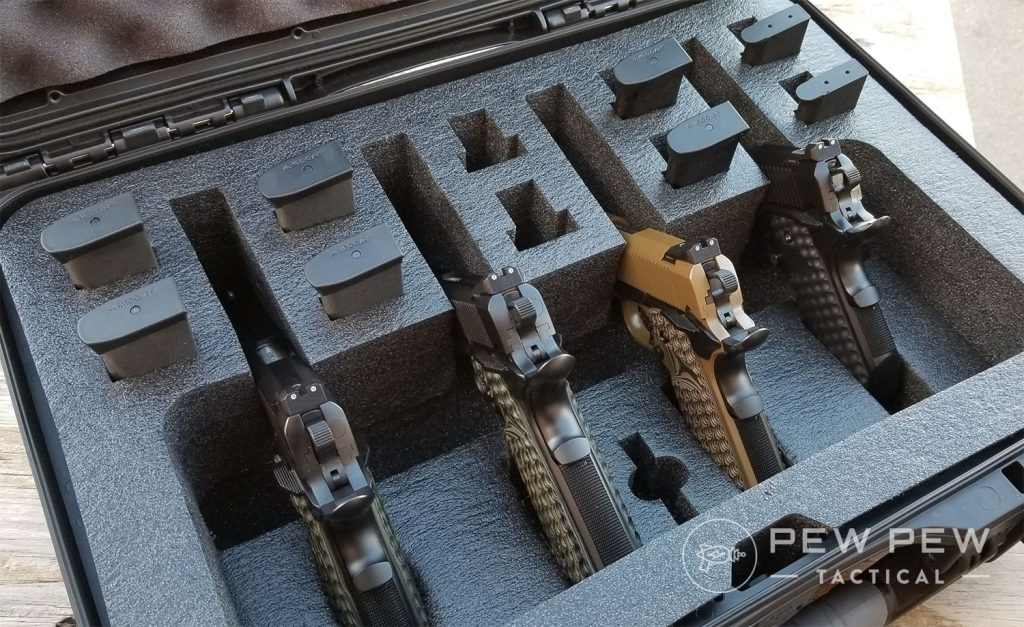
Handguns may be transported with a loaded chamber with or without a CHP
If you leave your vehicle with a handgun inside, it must be secured inside a:
- Locked hard case
- Locked glove compartment or center console
- Locked vehicle
- Locked RV (that is not your primary residence)
- Locked trunk of a locked vehicle
Self-Defense/Use of Force
When Is Lethal Force Allowed?
Aside from practicing at the shooting range, you hopefully will never need to fire your guns. If you are ever faced with a deadly threat to yourself or others, however, Colorado does allow for the use of deadly force in certain circumstances.
In Colorado, lethal force is almost never legal when protecting your physical belongings or property.
Castle Doctrine
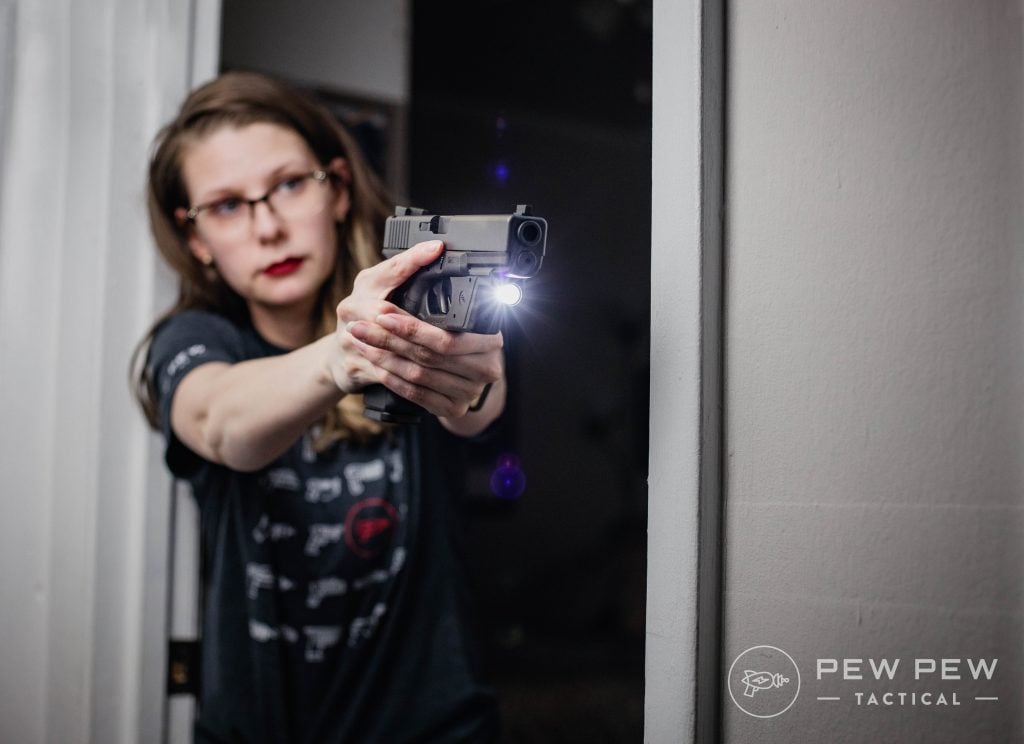
In Colorado, your home is your castle. Under what is commonly known as the “Castle Doctrine,” you can defend yourself when you’re at home. An occupant of a dwelling is justified in using physical force, including deadly physical force, against a person when:
- That person has illegally entered the house
- The occupant has a reasonable belief the person has
- Committed, is committing, or intends to commit a crime against someone or something, in addition to the illegal entry
- The occupant reasonably believes the person might use physical force, no matter how slight, against the occupant
In other words, if someone breaks into your home and is about to commit a crime, and you think that person will use any type of physical force against you, Colorado recognizes your right to defend yourself with deadly force.
Colorado’s definition of “dwelling” is very broad, so this doctrine applies if you are in an apartment, hotel room, or RV. (Common areas are not included.)
You’re even covered if you are a guest in someone else’s home. However, your car and outdoor spaces are not covered.
Standing Your Ground/Duty to Retreat
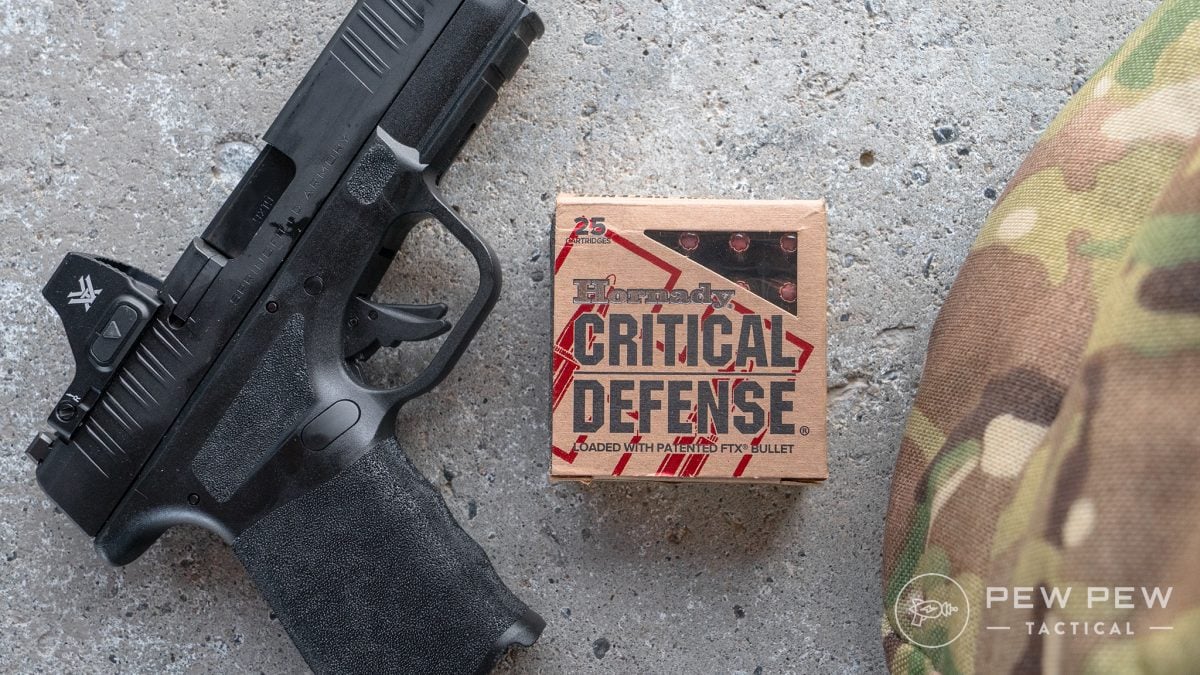
Colorado is a Stand Your Ground state, but the use of force must be proportional to the threat.
In a public setting, lethal force is allowed if you reasonably believe lesser force is inadequate and:
- You reasonably believe that you or another person are in imminent danger of being killed or of receiving great bodily injury
- An aggressor is using or you reasonably believe is about to use physical force against someone while committing or attempting to commit burglary
- An aggressor is committing or you reasonably believe is about to commit kidnapping, robbery, sexual assault, or assault
You cannot claim self-defense of any kind if you:
- Provoked a fight that you knew would cause harm
- Were the initial aggressor
- Agreed to the fight ahead of time (such as a duel or gang fight)
- Were resisting arrest
- Used force based on someone’s actual or perceived gender, gender identity, gender expression, or sexual orientation is also illegal, even if they made unwanted, nonforcible advances
Of course, even with all these laws on self-defense, always use your best judgment to decide what type of force is appropriate.
Final Thoughts
And on that happy note, we’re done! Hopefully, Colorado’s increasing restrictions haven’t discouraged you from trying to buy a gun. If anything, they should encourage you to try and buy as many as you can!
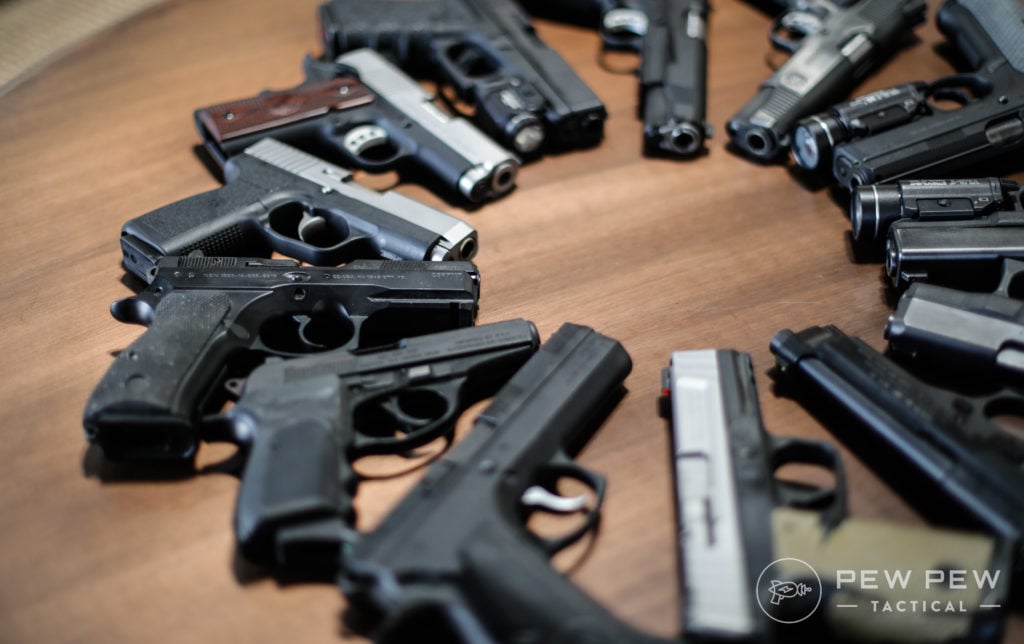
Of course, you’ll need a place to store all those guns. A sturdy safe can keep your guns from prying eyes and curious kids. If you want to start smaller, a gun cabinet, or even just a decent handgun safe may be a good investment. Getting proper training with your firearms is a good idea, too. Happy shooting!




